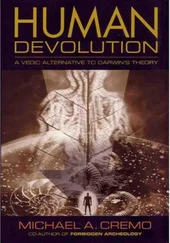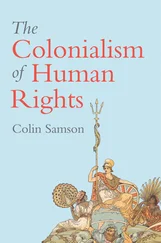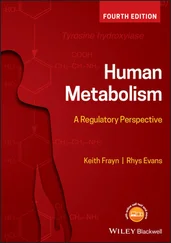The Western tradition of political theory has produced many formidable critics of such rights (see chapter two). This presents a strong challenge to the political science of human rights, especially since the classical critics are echoed by contemporary theorists. Underlying any social science of human rights, therefore, are a number of controversial philosophical assumptions. This does not, however, distinguish the social science of human rights from other branches of social science, such as the politics of democracy or the sociology of inequality. Nevertheless, it requires the social scientist of human rights to be aware of these philosophical controversies.
There have recently been increased contributions to human-rights studies by sociologists and anthropologists. The impact of the global economy on the protection of human rights has also increasingly become a subject of study. This has been accompanied by an interest in ‘the human-rights movement’ as a transnational social movement. The social science of human rights has therefore picked up momentum.
International law was traditionally concerned with regulating the relations among states with the primary aim of maintaining international peace. The leading concept of this project was that of state sovereignty, which forbade states from interfering with each other’s internal affairs. The UN introduced the concept of human rights into international law without altering the concept of sovereignty. This legal framework is, however, subject to intense political pressures, as states and other actors seek to realize their interests and their principles in the international arena. The implementation of human rights by the UN is, therefore, highly politicized, and this leads to selective attention to human-rights problems, political bargaining, and limited implementation of human-rights standards. The UN is not a utopian realm above politics, and the political character of human-rights implementation is unavoidable. The politics of human rights is not, however, always harmful to human rights, for governments may raise genuine human-rights issues from self-interested political motives, and, when political motives lead to a narrow and selective concern for human rights, appeals are sometimes made to human-rights principles that can be applied more widely.
The implementation of the UN’s human-rights principles was delayed for many years by the Cold War between the democratic, capitalist West and the authoritarian, Communist East, and by disagreements between the West and the new, postcolonial states. The UN proclaimed human rights but did little to implement them. The cost of proclaiming human rights is low, and many governments thought that they had much to lose by respecting the human rights of their sometimes highly discontented citizens. What is at first sight surprising is the development, albeit slow, of international human-rights law, and of a movement of NGOs to campaign for its implementation. In this situation, the UN stood in an ambiguous position. It was, on the one hand, the author and guardian of international human-rights standards while, on the other hand, it was an association of governments that were often serious human-rights violators. The UN has, therefore, been the central institution where international human-rights law and politics meet, and often clash, and where the gap between human-rights ideals and realities is especially apparent.
The political character of human rights has philosophical implications. The lawyers who have played a leading role in human-rights studies have sometimes relied, explicitly or implicitly, on the philosophy of legal positivism, which says that human rights are what human-rights law says they are. Human rights are, however, made and interpreted by a political process. The provisions of the UDHR were the subject of intense debates, and the final text was produced by a long series of votes. It is politically important that human rights have been codified in international and national law. It would be a mistake, however, to believe that the legalization of human rights takes the concept out of politics.
The legal-positivist approach to human rights not only misrepresents their character, but also has dangerous implications. The point of human rights has historically been to criticize legal authorities and laws that violate human rights. Legal positivists sometimes say that the only rights are those that are legally enforceable. It may be desirable that human rights should be legally enforceable, but it is not necessary that they should be so. The concept of human rights implies that they are often not. If human rights were legally enforceable, one could, and normally would, appeal to one’s legal rights, and would not need to appeal to one’s human rights. Human rights are available when legal rights fail. Human rights may be, and often are embodied in positive law, but an important function of human rights is to enable the criticism of unjust legal systems.
The principal philosophical problem of human rights is to show how they can be justified if they derive neither from law nor culture, both of which can be criticized on the ground that they violate human rights. There is an historical reason why there is a problem about the ‘source’ of human rights. The first systematic human-rights theory, proposed by John Locke in seventeenth-century England, assumed that God was the ‘source’ of human rights. Locke could assume agreement with and among his readers that this source provided the ultimate validation of such rights: God was the source both of what exists and of value. The problem faced by the United Nations in proclaiming the UDHR was that, precisely because it claimed that these rights were universal, it could not base them on any particular religious belief. The justificatory basis of human rights had to be abstracted from particular religious and ideological beliefs, but the character of that abstraction was not clear. The UDHR says little about the source of these rights, apart from some large and unsubstantiated claims in the preamble that recognition of human rights is ‘the foundation of freedom, justice and peace in the world’, and that disregard for human rights has resulted in ‘barbarous acts which have outraged the conscience of mankind’. These claims may contain important truths, but they do not give a clear account of the source or justification of human rights.
The idea of the ‘source’ of human rights contains an important and confusing ambiguity. It can refer either to the social origins or to the ethical justification of human rights. Social scientists have studied the social origins of rights in, for example, popular political protest, and, important though such studies may be for an historical understanding of the discourse of rights, we must be careful not to conflate social origins with ethical justifications, since there are social origins of evil as well as of good. The social-scientific approach to rights, by its preference for avoiding ethical questions, sometimes falls into this confusion. There are, therefore, two distinct questions about the ‘sources’ of human rights that we need to answer. Why do we have human rights? Why ought we to have human rights?
Another set of philosophical questions concerns the relations between human rights and other values. Do human rights occupy the whole space of moral and political theory, or are there other important values? If there are other important values, how are human rights related to them? The UDHR claims that human rights are the foundation of freedom, justice and peace, but does not say how these values are related, conceptually or empirically. It is important to determine as clearly as possible the limits as well as the value of human rights. It is common to say that human rights establish minimum standards of good government. Claiming too much for human rights may make it harder to defend them against their critics, and thereby weaken their appeal and effects. We need to be clear, therefore, whether the concept of human rights supports a comprehensive or a minimum-standards political philosophy.
Читать дальше












